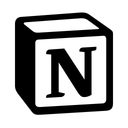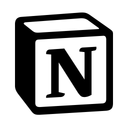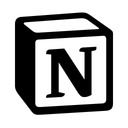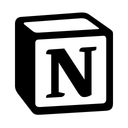Guru vs Notion (2025 Comparison)

Guru is a powerful knowledge management tool that excels in organizing and sharing information. With robust capabilities and excellent customer support, it's a great choice for teams looking to streamline their knowledge management processes.
- Robust knowledge management capabilities
- Excellent customer support
- Wide range of integrations
- Slightly higher price point
- Limited customization options
Free plan?
YesStarting price
$15 per month per user
Notion is a versatile productivity tool that combines note-taking, task management, and collaboration features. With its user-friendly interface and customizable templates, it's ideal for those seeking a flexible and intuitive solution.
- Highly customizable templates
- Advanced collaboration features
- User-friendly interface
- Customer support can be slow
- Limited focus on knowledge management
Free plan?
YesStarting price
$10 per month per userWhat is Guru?
Guru is a knowledge management tool designed to help teams capture, organize, and share information efficiently. It integrates seamlessly with various platforms, ensuring that your team has access to the right information at the right time. With Guru, you can create a centralized knowledge base that is easily accessible, making it a valuable asset for improving productivity and collaboration. Whether you're onboarding new employees or streamlining communication, Guru provides a reliable solution for managing your team's knowledge effectively.
What is Notion?
Notion is a versatile productivity tool that combines note-taking, task management, and collaboration features into one platform. It allows users to create customized workspaces, making it ideal for both personal and professional use. With its intuitive interface, Notion helps users organize their thoughts, projects, and tasks seamlessly. Whether you're planning a project, managing a team, or simply jotting down ideas, Notion provides the flexibility and functionality needed to enhance productivity and streamline workflows.
Pros and Cons of Guru vs Notion

Pros & Cons of Guru
- Guru excels in knowledge management, providing a centralized platform for storing and sharing information. This makes it a valuable tool for teams that need to manage their knowledge effectively.
- Guru is known for its excellent customer support, providing users with timely assistance and resources. This makes it a great choice for those who value responsive support.
- Guru offers a wide range of integrations with popular platforms, making it easy to connect with other tools. This makes it a great choice for those who need a tool that can integrate with their existing systems.
- Guru's pricing may be slightly higher than some competitors, which could be a consideration for budget-conscious users. However, the value it provides may justify the cost for many.
- While Guru offers templates, it may not provide the same level of customization as some other tools. This could be a drawback for users who want to create highly personalized workflows.

Pros & Cons of Notion
- Notion offers a wide range of customizable templates, allowing users to tailor their workspaces to their specific needs. This flexibility makes it a great choice for those who want to create personalized workflows.
- Notion's advanced collaboration features allow users to collaborate in real-time, making it easy to work together on projects and tasks. This makes it a standout choice for teams.
- Notion's user interface is intuitive and easy to navigate, making it a great choice for those who want a tool that is easy to use. Its modern design is visually appealing and user-friendly.
- Notion's customer support may not be as responsive as some users would like, which could be a consideration for those who value quick assistance.
- While Notion offers knowledge management features, its focus is more on versatility and collaboration. This could be a drawback for users who prioritize knowledge management.
Guru vs Notion: At A Glance
Value to Price
When it comes to value for money, Notion slightly edges out Guru. Notion offers a comprehensive suite of features at a competitive price, making it a great choice for those looking for an all-in-one solution. Guru, while slightly more expensive, provides excellent value with its robust knowledge management capabilities. If you're looking for a tool that offers a wide range of features at a reasonable price, Notion might be the better option.
Ease of Use
Notion is renowned for its user-friendly interface, making it easy for users to navigate and utilize its features. Guru, while also user-friendly, may require a bit more time to get accustomed to due to its specialized focus on knowledge management. If you prioritize ease of use and want a tool that is intuitive and straightforward, Notion is likely the better choice.
Functionality
Both Guru and Notion offer a wide range of functionalities, but Notion's versatility gives it a slight edge. Notion allows users to create customized workspaces, manage tasks, and collaborate seamlessly, making it a versatile tool for various use cases. Guru, on the other hand, excels in knowledge management, providing a centralized platform for storing and sharing information. If you need a tool with diverse functionalities, Notion is the way to go.
Scalability
In terms of scalability, Notion offers more flexibility, allowing users to expand their workspaces and add more features as needed. Guru, while scalable, is more focused on knowledge management, which may limit its scalability for certain use cases. If you're looking for a tool that can grow with your needs, Notion is the better option.
Integrations
Guru shines in the integrations department, offering a wide range of integrations with popular platforms, making it easy to connect with other tools. Notion also offers integrations, but Guru's extensive library gives it an edge. If integrations are a priority for you, Guru is the better choice.
Customer Support
Guru is known for its excellent customer support, providing users with timely assistance and resources. Notion, while offering support, may not be as responsive as Guru. If customer support is a critical factor for you, Guru is the better option.
Security
Both Guru and Notion prioritize security, ensuring that user data is protected. Notion offers robust security features, but Guru's focus on knowledge management gives it an edge in terms of data protection. If security is a top concern, Guru is the better choice.
Overall Rating
Overall, Notion scores higher due to its versatility, ease of use, and value for money. Guru, while slightly behind, excels in knowledge management and customer support. If you're looking for a versatile tool with a wide range of features, Notion is the better choice. However, if knowledge management and customer support are your priorities, Guru is a strong contender.
Guru vs Notion: A Detailed Breakdown of Key Features
Customizable Templates
Notion offers a wide range of customizable templates, allowing users to tailor their workspaces to their specific needs. This flexibility makes it a great choice for those who want to create personalized workflows. Guru, while offering templates, may not provide the same level of customization as Notion. If you value customization and want to create a workspace that suits your unique needs, Notion is the better option.
Collaboration Tools
Both Guru and Notion excel in collaboration, but Notion's advanced collaboration features give it an edge. Notion allows users to collaborate in real-time, making it easy to work together on projects and tasks. Guru also offers collaboration tools, but Notion's seamless integration of these features makes it a standout choice. If collaboration is a priority for you, Notion is the better option.
Task Management
Notion's task management features are robust, allowing users to create and manage tasks with ease. This makes it a great choice for those who need a tool to keep track of their projects and deadlines. Guru also offers task management features, but Notion's comprehensive approach makes it the better choice for those who need a tool to manage their tasks effectively.
Knowledge Management
Guru excels in knowledge management, providing a centralized platform for storing and sharing information. This makes it a valuable tool for teams that need to manage their knowledge effectively. Notion also offers knowledge management features, but Guru's focus on this area gives it an edge. If knowledge management is a priority for you, Guru is the better choice.
Mobile Access
Both Guru and Notion offer mobile access, allowing users to access their workspaces on the go. Notion's mobile app is user-friendly and provides a seamless experience, making it a great choice for those who need to work on the go. Guru also offers mobile access, but Notion's app is more intuitive and easier to use. If mobile access is important to you, Notion is the better option.
User Interface
Notion's user interface is intuitive and easy to navigate, making it a great choice for those who want a tool that is easy to use. Guru also offers a user-friendly interface, but Notion's design is more modern and visually appealing. If you value a clean and intuitive user interface, Notion is the better choice.
Pricing Comparison of Guru and Notion
To assist you in making an informed choice, we’ve outlined the pricing plans and essential features of Guru and Notion. This comparison will highlight the best option for managing your team's knowledge and productivity.

Guru Pricing Plans
- Volume discounts available for larger teams.
- Instant AI answers from your content.
- Connect existing tools for seamless integration.
- Detailed and secure permissions for data control.
- Custom solutions tailored to organizational needs.
- Enhanced security and compliance features.
- Priority customer support and service.
- Advanced analytics and reporting capabilities.

Notion Pricing Plans
- Collaborate with friends, family & colleagues on your pages.
- Basic page analytics to track interactions.
- Restore your page to a previous version with 7-day history.
- Invite up to 10 guests to collaborate.
- Unlimited file uploads for seamless data management.
- 30-day page history for better version control.
- Invite up to 100 guests for broader collaboration.
- Custom websites with Google Analytics integration.
- Private teamspaces for sensitive information.
- Bulk PDF export for legal or compliance backups.
- Advanced page analytics for detailed insights.
- Invite up to 250 guests for extensive collaboration.
- Advanced security & controls for enhanced protection.
- Audit log for tracking security-related activities.
- Customer success manager for expert guidance.
- Unlimited page history for comprehensive version tracking.
Our Rating Methodology
We thoroughly evaluate each productivity tool, focusing on key aspects like ease of use, functionality, and integrations. By analyzing user feedback and testing features, we ensure our recommendations align with your needs. Each factor is weighted to provide a reliable final rating, helping you make informed decisions.
Guru or Notion: Which One Matches Your Business Needs?
Choose Guru If You Need ...
- Robust knowledge management
If you are a team that prioritizes knowledge management and needs a centralized platform for storing and sharing information, Guru is the better choice. Its robust capabilities make it ideal for managing your team's knowledge effectively.
- Excellent customer support
If you value responsive and reliable customer support, Guru is the better option. Its excellent support services ensure that you receive timely assistance and resources whenever you need them.
Choose Notion If You Need ...
- Versatile productivity tool
If you need a versatile tool that combines note-taking, task management, and collaboration features, Notion is the better choice. Its flexibility and functionality make it ideal for various use cases and workflows.
- Highly customizable templates
If you want to create personalized workflows and tailor your workspace to your specific needs, Notion is the better option. Its wide range of customizable templates allows you to create a workspace that suits your unique requirements.
Frequently Asked Questions
 Which tool is better for knowledge management?
Which tool is better for knowledge management?
 Which tool offers better customization options?
Which tool offers better customization options?
 Which tool is more user-friendly?
Which tool is more user-friendly?
 Which tool offers better customer support?
Which tool offers better customer support?
 Which tool is more affordable?
Which tool is more affordable?
 Which tool offers better integrations?
Which tool offers better integrations?

Martin Lunendonk
Martin Lunendonk is a senior tech writer specializing in website builders, web hosting, and ecommerce platforms. With a background in finance, accounting, and philosophy, he has founded multiple tech startups and worked in medium to large tech companies and investment banking, bringing deep expertise and reliable insights to his software reviews.



